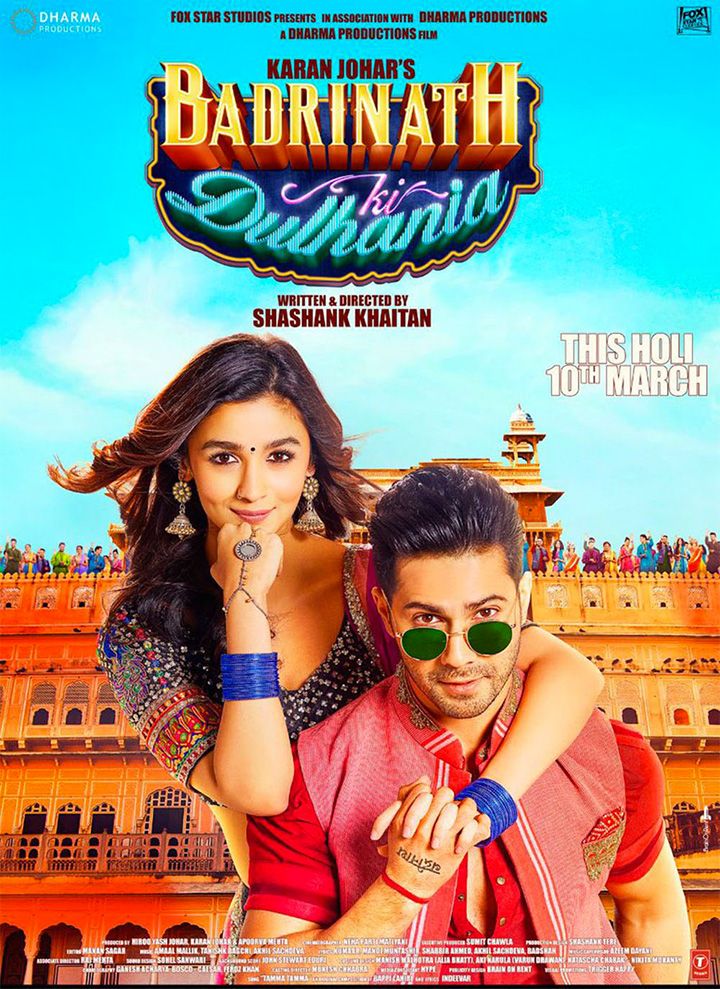It’s often difficult, as a feminist, to reconcile your love of Bollywood with your belief in equality. Most of us will look back at our favourite Bollywood films and realise that they’re actually problematic and sexist. So many of them are based on ridiculous concepts, like stalking = love, a woman = an object to be “won”, and a heroine = something to be shuffled from her father’s house to her husband’s.
When it starts off, Badrinath Ki Dulhania feels like it could be that kind of movie. It’s your age-old love story of a guy falling in love with a girl at first sight, and then pursuing her because he feels entitled to her. This time, though, it’s a bit different: instead of letting it slide, Vaidehi meets Badrinath head-on. She makes it clear to him that she can stand up for herself, and he can’t win her just by being relentless.
Vaidehi, in short, is the kind of woman we’ve been hoping to see more of in our films. Which isn’t to say that she’s perfect–she isn’t. She can be flaky, selfish and impulsive, and she still does/accepts things that are decidedly un-feminist. (As do we, in real life.) But she’s clear that she’s an adult capable of making her own decisions and will do just that. Badrinath Ki Dulhania, therefore, isn’t just a love story; it’s also about the fight many women face on a daily basis. In one fleeting scene set in an english class, Vaidehi is asked to spell the word “claustrophobic”–the exact feeling many of us experience while trying to struggle against the metaphorical cage of society (and family).
BKD is also a great example of how even people who are “good at heart” can be sexist. Badrinath Bansal is your stand-in for the typical Indian guy: lovable enough, and clearly intending to be a nice person, but still full of indoctrinated misogyny. He’s the kind of guy who’d give himself a pat on the back for being so modern that he’ll “allow” a woman to do something–without realising she does not require permission in the first place.
Because Badrinath Ki Dulhania is a fairly accurate depiction of people, situations and relationships in India, it can feel downright frustrating at times. This reaches its peak post-interval, when you want to yell at Vaidehi for rolling with Badrinath’s behaviour and still trying to get through to him. It’s ridiculous, but it’s unfortunately accurate. In the movie – often like in real life – it takes a woman’s willingness, patience and hard work to slowly change a man’s thinking, until he emerges a more conscious person. It’s a burden women shouldn’t have to bear, but do anyway, because the alternative is far worse.
No, Badrinath Ki Dulhania isn’t a feminist film. It’s quite problematic at parts, especially Badrinath’s violence and how easily it’s dismissed. Having said that, I would argue that its worth should not be overlooked. The film highlights important concepts under the garb of entertainment, making it palatable for the regular audience. It’s a fun, non-threatening movie. There are catchy songs, good-looking people, and great acting all around. People won’t go in to learn anything, but you can hope that, by the end of it, they’ve subtly absorbed a few lessons–like to not oppress a woman to the point where she has to take drastic steps to assert herself.
Yes, it’s incredibly tempting to want BKD to be more: more “woke”, more defiant. But, given our current situation, it’s still an important movie. Sure, in a perfect world, a Vaidehi would not end up with a Badrinath. But in a perfect world, a Badrinath would not exist in the first place.

